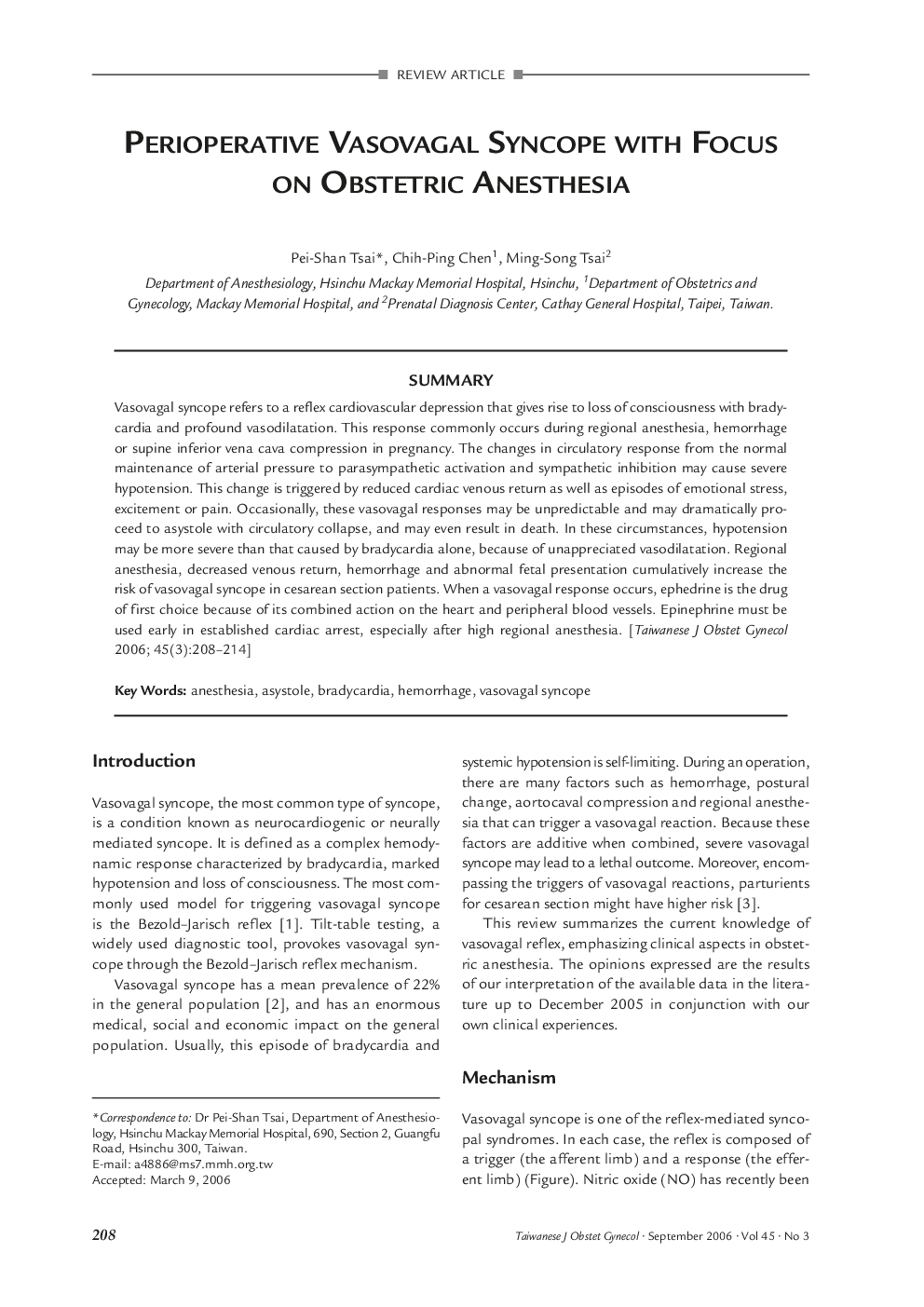| Article ID | Journal | Published Year | Pages | File Type |
|---|---|---|---|---|
| 3976235 | Taiwanese Journal of Obstetrics and Gynecology | 2006 | 7 Pages |
SummaryVasovagal syncope refers to a reflex cardiovascular depression that gives rise to loss of consciousness with bradycardia and profound vasodilatation. This response commonly occurs during regional anesthesia, hemorrhage or supine inferior vena cava compression in pregnancy. The changes in circulatory response from the normal maintenance of arterial pressure to parasympathetic activation and sympathetic inhibition may cause severe hypotension. This change is triggered by reduced cardiac venous return as well as episodes of emotional stress, excitement or pain. Occasionally, these vasovagal responses may be unpredictable and may dramatically proceed to asystole with circulatory collapse, and may even result in death. In these circumstances, hypotension may be more severe than that caused by bradycardia alone, because of unappreciated vasodilatation. Regional anesthesia, decreased venous return, hemorrhage and abnormal fetal presentation cumulatively increase the risk of vasovagal syncope in cesarean section patients. When a vasovagal response occurs, ephedrine is the drug of first choice because of its combined action on the heart and peripheral blood vessels. Epinephrine must be used early in established cardiac arrest, especially after high regional anesthesia.
